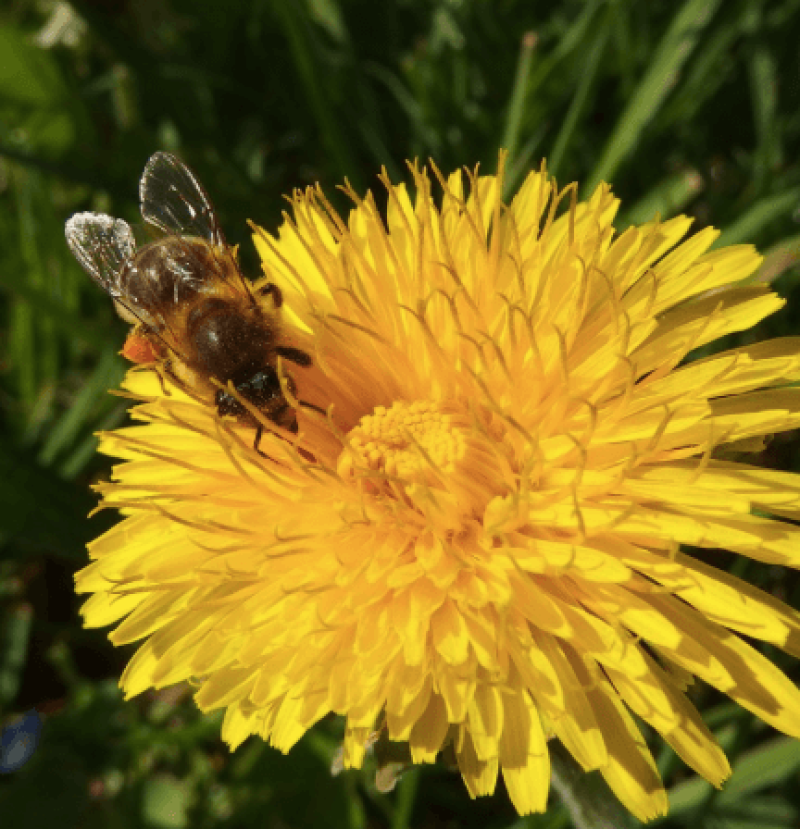The GLP aggregated and excerpted this blog/article to reflect the diversity of news, opinion and analysis.
A Purdue University study shows that honeybees collect the vast majority of their pollen from plants other than crops, even in areas dominated by corn and soybeans, and that pollen is consistently contaminated with a host of agricultural and urban pesticides throughout the growing season.
Christian Krupke, professor of entomology, and then-postdoctoral researcher Elizabeth Long collected pollen from Indiana honeybee hives at three sites over 16 weeks to learn which pollen sources honeybees use throughout the season and whether they are contaminated with pesticides.
. . . .
. . . .”The sheer numbers of pesticides we found in pollen samples were astonishing. Agricultural chemicals are only part of the problem. Homeowners and urban landscapes are big contributors, even when hives are directly adjacent to crop fields,” [said Krupke.]
. . . .
. . . . [R]esearch efforts and media attention have emphasized neonicotinoids’ harmful effects on pollinators . . . Few studies, however, have examined how non-crop plants could expose bees to other classes of pesticides. . . .
. . . .
The study was published in Nature Communications on Tuesday (May 31) and is available at http://dx.doi.org/10.1038/ncomms11629.
Read full, original post: Honeybees pick up ‘astonishing’ number of pesticides via non-crop plants































